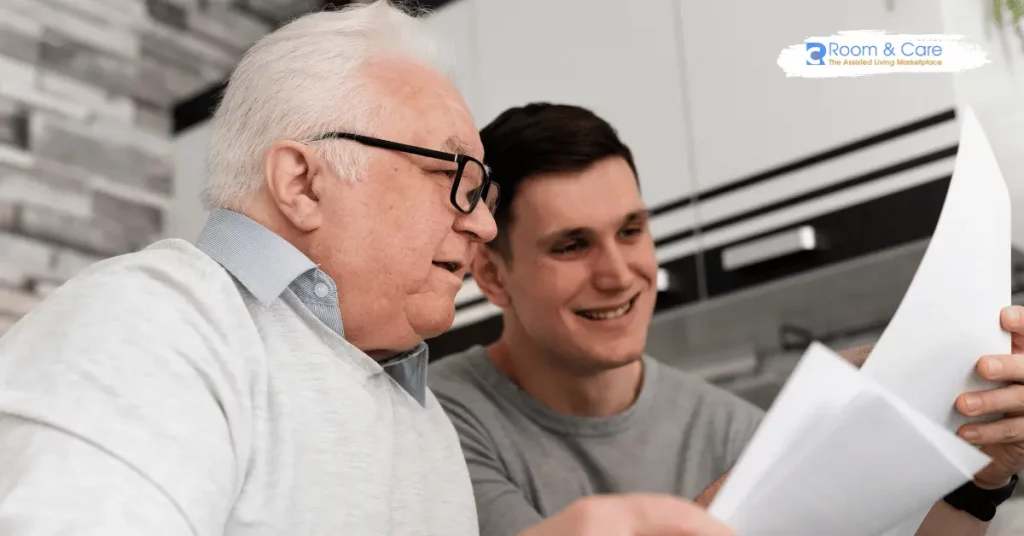

As we age, managing finances becomes increasingly critical, especially for those entering retirement or considering long-term care options. For many elderly homeowners, a reverse mortgage presents an opportunity to leverage their home equity to meet financial needs. This guide explores everything you need to know about reverse mortgages for the elderly and reverse mortgages and nursing homes.
A reverse mortgage is a financial product designed for homeowners aged 62 and older that allows them to convert part of their home equity into cash without having to sell their home or make monthly mortgage payments. Unlike a traditional mortgage where you make payments to the lender, in a reverse mortgage, the lender pays you.
There are three main types of reverse mortgages:
To qualify for a reverse mortgage, you must meet the following criteria:
Reverse mortgages offer several benefits that can enhance financial stability and quality of life for the elderly:
While reverse mortgages offer numerous benefits, it’s essential to consider the following factors before deciding:
Reverse mortgages come with various costs, including origination fees, mortgage insurance premiums (for HECMs), closing costs, and servicing fees. These can add up and reduce the amount of equity available to you. According to the National Reverse Mortgage Lenders Association (NRMLA), the average closing costs for a reverse mortgage range from $2,500 to $5,000.
A reverse mortgage must be repaid when the borrower sells the home, moves out permanently, or passes away. This repayment typically comes from the sale of the home, which can impact the inheritance left to heirs. In 2022, it was reported that 95% of reverse mortgage borrowers’ homes were sold to repay the loan.
Reverse mortgages accrue interest over time, increasing the loan balance. It’s important to understand how interest rates (fixed or variable) will affect the total amount owed. As of 2023, the average interest rate for HECMs was around 4.2%.
The amount you can borrow depends on your home’s value, which can fluctuate with the housing market. Lower home values can limit the funds available through a reverse mortgage.

One common concern is how a reverse mortgage interacts with long-term care needs, such as moving into a nursing home. Here’s what you need to know:
If you move into a nursing home or assisted living facility temporarily (for up to 12 consecutive months), you can keep your reverse mortgage. Your home must remain your primary residence, and you must continue to pay property taxes, insurance, and maintenance costs.
If the move to a nursing home or other care facility is permanent, the reverse mortgage becomes due. You or your heirs must repay the loan, usually by selling the home.
Consider your long-term care plans when deciding on a reverse mortgage. If you anticipate needing nursing home care, evaluate how the loan repayment might impact your financial situation and your heirs.
For those considering a reverse mortgage, here are some practical tips to help make an informed decision:
Before proceeding, consult with a financial advisor to evaluate whether a reverse mortgage aligns with your financial goals and needs.
Thoroughly understand the terms, fees, and obligations of the reverse mortgage. Ask questions and seek clarification on anything that is unclear.
Compare different reverse mortgage products and lenders to find the best fit for your situation. Consider both HECMs and proprietary options.
Explore other options for accessing funds, such as downsizing, home equity loans, or personal savings, to determine if a reverse mortgage is the best choice.
Consider how changes in your health or living situation might affect your ability to stay in your home and repay the reverse mortgage.

Q: How much money can I get from a reverse mortgage? A: The amount you can borrow depends on your age, home value, interest rates, and the specific reverse mortgage product. Typically, older borrowers with higher-valued homes can access more funds. For instance, a 70-year-old homeowner with a $300,000 home could receive approximately $160,000 in loan proceeds.
Q: Will I lose my home with a reverse mortgage? A: You can stay in your home as long as you meet the loan obligations, such as paying property taxes and insurance and maintaining the property. The loan becomes due if you sell the home, move out permanently, or pass away.
Q: Can I take out a reverse mortgage if I have an existing mortgage? A: Yes, but you must use the proceeds from the reverse mortgage to pay off the existing mortgage first.
Q: How does a reverse mortgage affect my heirs? A: Heirs can repay the reverse mortgage by selling the home or using other funds. Any remaining equity after repayment belongs to the heirs. According to the NRMLA, 95% of reverse mortgage borrowers’ homes are sold to repay the loan.
Q: Are reverse mortgage proceeds taxable? A: No, reverse mortgage proceeds are considered loan advances and are not taxable income.
Reverse mortgages can be a valuable financial tool for the elderly, offering a way to access home equity and enhance financial security in retirement. However, it’s crucial to weigh the benefits against the costs and consider how it fits into your overall financial plan. If you’re considering a reverse mortgage, seek advice from financial professionals and explore all your options to make an informed decision.
At Room and Care, we understand the complexities of financial planning for long-term care. We offer resources and support to help you find the best assisted living facilities, adult family homes, memory care facilities, nursing homes, and independent living communities with no referral fees or middlemen, ensuring direct access to quality care options. Visit our website to learn more and take the next step towards securing a comfortable and financially stable future.